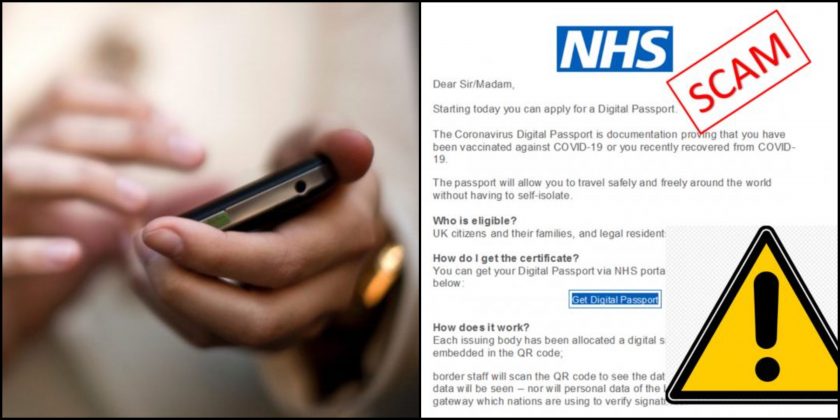Flintshire Trading Standards warning residents not to fall for Covid vaccine passport scam

Flintshire Trading Standards has issued a warning to residents about scam emails purporting to be from the NHS.
The emails – which carry the NHS logo – are being sent out asking for payment in return for a ‘Coronavirus Digital Passport’ to prove that someone has been vaccinated for Covid-19.
A button takes users through to a fake NHS website, which asks for payment details.
Flintshire Trading Standards is warning residents that this is a scam.
A Trading Standards spokesperson said: “Flintshire Trading Standards are warning residents of a recent scam email concerning a Covid Vaccine Passport Scheme.”
“The email purports to be from the NHS and informs the recipient that they can apply for their `Digital Coronavirus Passport’.”
“When clicking on the link in the email, it takes you to a convincing but fake NHS website and then asks for personal and payment details. Do not click on this link.”
“Your vaccination status is obtained free through either the NHS app, website or by calling the NHS on 119.”
According to the National Cyber Security Centre (NCSC) there was a 15-fold rise in the removal of online campaigns last year compared to 2019.
Evidence shows that scammers are shamelessly exploiting the pressures that the pandemic is putting people under, with the National Audit Office (NAO) estimating that individuals lose £10 billion a year due to online fraud.
Local politicians Jack Sargeant MS and Mark Tami MP have teamed up with Citizen’s Advice to remind residents that anyone can fall victim to a scam.
Online scams include fake “Get Rich Quick” investment schemes or someone pretending to be your bank to get you to transfer money or personal details.
Jack Sargeant MS said: “Research has found that those under 35 are most likely to be victims of a scam, showing how anyone can fall victim to these criminals and we all need to be on our guard.”
Mark Tami MP added: “If something looks too good to be true, you’re contacted unexpectedly or asked to give away personal information make sure you take the time to seek help and advice.”
If you think someone might be trying to scam you, it’s important to act straight away. If you need advice and support you can call the Citizens Advice consumer service on 0808 223 1133 or visit www.citizensadvice.org.uk.
Anyone who receives a suspicious email can report it by forwarding the email to [email protected]
Spotted something? Got a story? Email: [email protected]
Latest News
